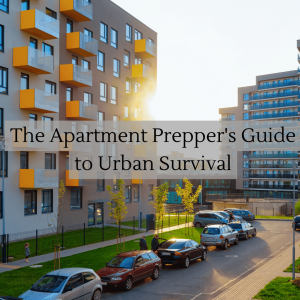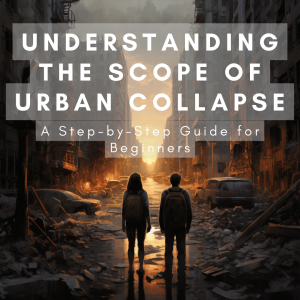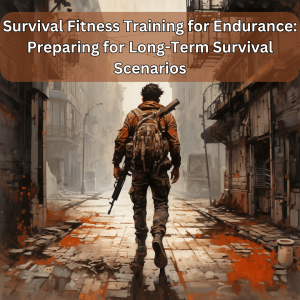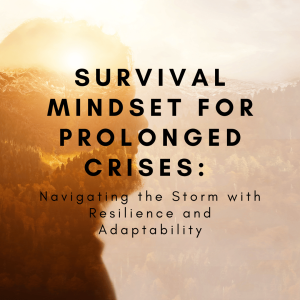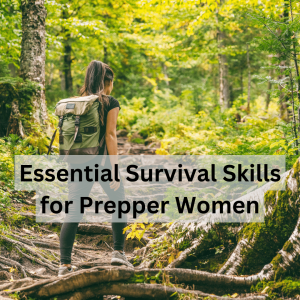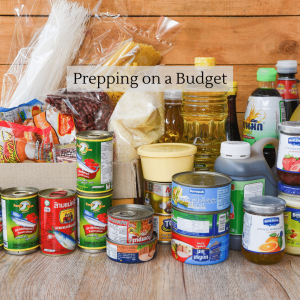In recent years, the concept of prepping, short for preparedness, has gained popularity as individuals and families seek to be self-reliant and ready for unforeseen emergencies and disasters. From natural calamities like hurricanes and earthquakes to economic downturns and pandemics, the need for preparedness has become increasingly apparent. However, many people are deterred from prepping by the misconception that it requires substantial financial investment. In reality, prepping can be accomplished on a budget with careful planning, prioritization, and resourcefulness. In this article, we will explore various strategies and tips for prepping on a budget, ensuring that you and your loved ones can face uncertainties with confidence, even without spending a fortune.
The Foundation of Prepping
Before delving into budget-friendly prepping strategies, it’s essential to understand the core principles that guide preparedness. At its heart, prepping is about self-reliance, adaptability, and maintaining a certain level of autonomy during challenging times. These principles can be achieved through the following key steps:
1. Risk Assessment
Identify the potential risks and hazards specific to your geographic location and circumstances. Consider the most common natural disasters in your area, such as floods, wildfires, or tornadoes, as well as potential societal or economic challenges that might impact your community.
2. Prioritization
Determine your prepping priorities based on the identified risks. Focus on the most likely and severe scenarios first, such as short-term power outages, food and water shortages, or loss of income.
3. Planning
Create a comprehensive preparedness plan that outlines the necessary steps to address the identified risks. This includes building emergency kits, establishing communication protocols, and creating contingency plans.
4. Education
Educate yourself and your family about essential survival skills, such as first aid, basic home repairs, gardening, and water purification techniques. Knowledge is an invaluable asset in any emergency situation.
Prepping on a Budget: Tips and Strategies
1. Budget Allocation
Start by setting aside a specific amount in your monthly budget dedicated to prepping. Even a small allocation can accumulate over time and allow you to make gradual progress.
2. Stockpile Smartly
Building a stockpile of essential supplies is a fundamental aspect of prepping. To do this on a budget, take advantage of sales, discounts, and coupons. Focus on purchasing items with a longer shelf life, like canned goods, rice, beans, and dried foods.
3. DIY Projects
Embrace the do-it-yourself (DIY) mentality. Many prepping supplies, such as first aid kits, water filters, and emergency shelters, can be made at home for a fraction of the cost of store-bought alternatives. Numerous online resources and tutorials can guide you through these projects.
4. Second-hand Shopping
Thrift stores, yard sales, and online marketplaces can be goldmines for budget preppers. Look for used camping gear, sturdy clothing, and other essential items that are in good condition but significantly cheaper than buying new.
5. Water Conservation
Water is a top priority in any emergency situation. Instead of purchasing expensive water storage containers, clean and repurpose plastic bottles and containers. Additionally, collect rainwater in barrels or large containers during rainy seasons to supplement your water supply.
6. Gardening and Seed Saving
Starting a home garden is an excellent way to supplement your food supply. Seeds are relatively inexpensive, and you can save seeds from your harvest to replant the following year, further reducing costs.
7. Learn Basic Skills
Invest time in learning essential survival skills. Take free or low-cost workshops, watch online tutorials, or join local community groups focused on survival techniques. Knowledge is a powerful tool and costs little more than your time and effort.
8. Bartering and Networking
Build relationships with like-minded individuals in your community or online prepping forums. Bartering skills or surplus items with others can help you acquire supplies you may need without spending money.
9. Focus on Multi-Use Items
Choose prepping items that have multiple functions. For instance, a good quality multi-tool can serve various purposes, eliminating the need to buy several specialized tools.
10. Plan for Long-term Goals
Set long-term prepping goals and celebrate small milestones along the way. Rome wasn’t built in a day, and the same applies to prepping on a budget. Stay patient and persistent, and you’ll see progress over time.
Prepping on a budget is not only possible but also an essential skill to master. By following the core principles of preparedness and adopting budget-friendly strategies, you can build resilience and self-reliance without breaking the bank. Remember that preparedness is an ongoing journey, and even small steps can make a significant difference in your ability to face the uncertainties of the future confidently. So, start today and take one step closer to a more secure and prepared tomorrow.
